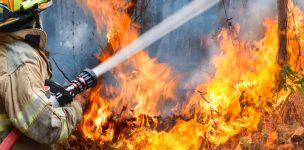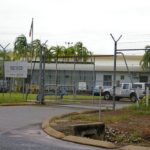Penalty for Arson to Increase in New South Wales

The NSW Parliament passed laws overnight which will increase the maximum penalty for being reckless as to whether a fire you created spreads to public land or the private land of another person, from 14 to 25 years in prison.
Putting community safety first
In a press release, Attorney General Mark Speakman claimed the Community Protection Legislation Amendment Bill, which contains the amendments, proves the government is serious about ‘improving the criminal justice system’.
“We have listened to the community and made changes that send a clear message to would-be offenders, providing courts with the authority to impose stronger penalties for offences that put safety at risk,” Mr Speakman stated.
“This fire season is expected to be one of the most challenging the State has experienced. The deliberate lighting of bushfires has the potential to cause catastrophic damage, even death. Arsonists are on notice the maximum penalty for this offence will rise from 14 years to 21 years imprisonment.”
The law and penalties for arson in New South Wales
Section 203E of the Crimes Act 1900 (NSW) makes it a crime to cause a bushfire.
The section will provides that a maximum penalty of 21 years’ imprisonment applies where a person ‘intentionally causes a fire’, and ‘is reckless as to the spread of the fire to vegetation on any public land or on land belonging to another’.
However, a person is not guilty of the offence if they are ‘a firefighter or acting under the direction of a firefighter’ and they ‘caused the fire in the course of bushfire fighting or hazard reduction operations.’
The section further provides that a person who is acquitted of the offence may alternatively be convicted of an offence under section 100(1) of the Rural Fires Act 1997 (NSW).
That section prescribes a maximum penalty of five years’ imprisonment and/or a fine of $11,000 for any person who, without lawful authority:
- sets fire or causes fire to be set to the land or property of another person, the Crown or any public authority, or
- being the owner or occupier of any land, permits a fire to escape from that land under such circumstances as to cause or be likely to cause injury or damage to the person, land or property of another person or the land or property of the Crown or a public authority,
This offence may be easier to establish as it does not require proof of intent.
Subsection 1A makes clear that setting a fire when there is a total fire ban is to be considered an aggravating factor when sentencing for the above offence.
Subsection 1B prescribes a maximum penalty of seven years’ imprisonment and/or a $120,000 for any person who commits an offence under subsection 1 “knowing” there was a total fire ban. This offence requires the prosecution to prove beyond reasonable doubt that the defendant in fact knew the ban was in place.
And subsection 2 sets down a maximum penalty of 12 months behind bars and a fine of $5,500 for any person who, “without lawful authority, leaves whether temporarily or otherwise any fire which the person has lit or used in the open air before the fire is thoroughly extinguished is guilty of an offence”
Lawyers for arson charges
If you are going to court for an arson offence and require advice from an experienced criminal defence lawyer, call us anytime on (02) 9261 8881 to arrange a free first conference at one of our nine office locations, including the Sydney CBD, Liverpool, Parramatta, Newcastle and Wollongong.






